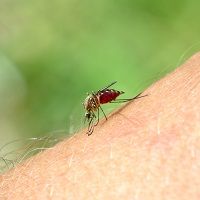Article
Zika Virus: Florida Governor Declares Public Health Emergency
Author(s):
The Zika virus has been making headlines, and now there are reports of multiple diagnoses in Florida, prompting calls for emergency.

The Zika virus has been making headlines, and now there are reports of multiple diagnoses in Florida, prompting calls for emergency.
On February 1, the World Health Organization (WHO) declared a global public health emergency for the persisting Zika virus. Two days later, Florida Governor Rick Scott alerted the same emergency in four counties: Miami-Dade, Hillsborough, Lee, and Santa Rosa.
“Today I am directing Surgeon General Dr. John Armstrong to declare a public health emergency in the four counties that have individuals with the Zika virus,” Governor Scott began in a statement.
There have been a total of nine travel-related Zika cases in the four counties. Although they were not locally transmitted, concerns over the risk of spreading the disease remain of high — especially since the first sexually transmitted case was just confirmed in the US. The virus is expected to move throughout the country; and without a vaccine or specific treatment, the outbreak has the potential to lead to devastating outcomes.
- Get trending & breaking health news to your email --> here!
The mosquito-borne illness has made its way to 24 countries and regions so far, and the Centers for Disease Control and Prevention (CDC) issued a Level 2 travel alert for all of them. Pregnant women are especially advised to avoid travel to infected areas because Zika is tied to microcephaly — a condition where an infant is born with a smaller-than-normal brain and head size.
In addition to the public health emergency, Governor Scott put emphasis on mosquito control in residential areas. The Florida Department of Health will continue to work with the CDC and other health institutes.
“We know that we must be prepared for the worst even as we hope for the best,” Scott concluded.
What to Read Next >>> First Sexually Transmitted Zika Virus Case Happened in the US





